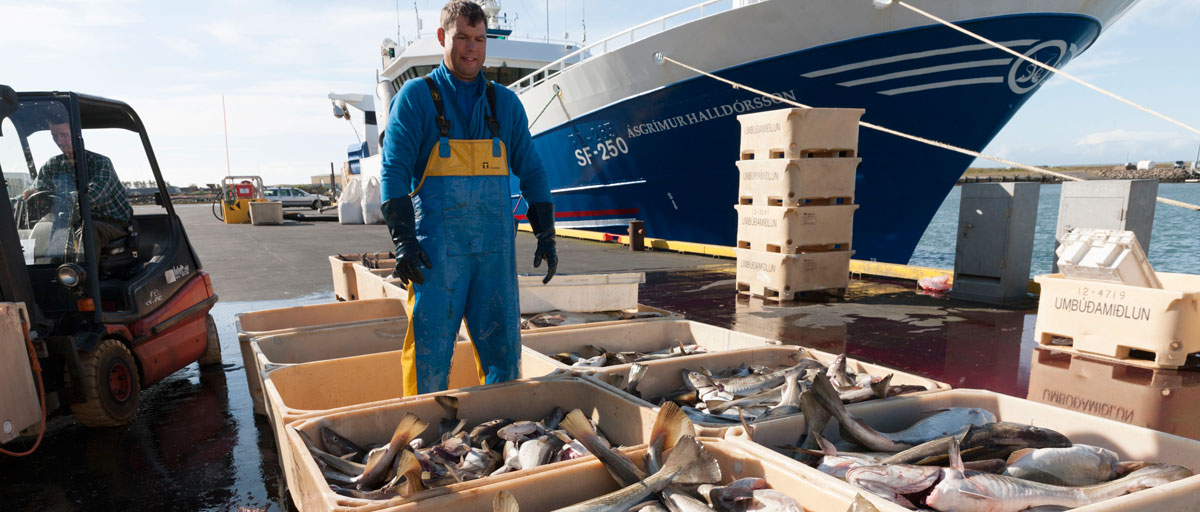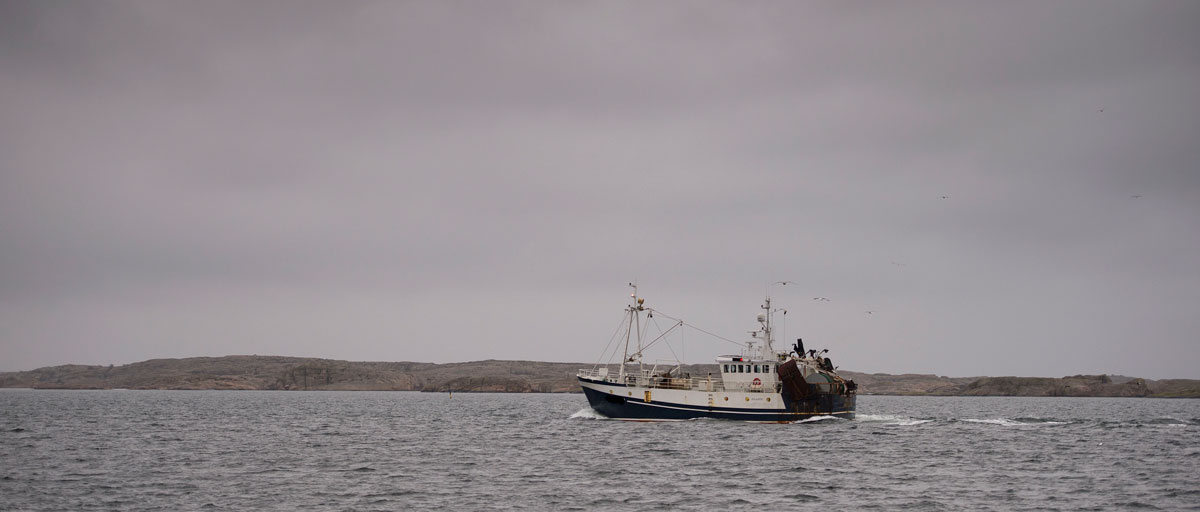
A new study shows that regulations have the strongest impact on fishing strategies. While this has contributed to the recovery of the Baltic Sea cod stock, there are long-term risks with a "command-and-control"-type of management. Photo: A. Maslennikov/Azote
Baltic Sea fishing
Command-but-too-much-in-control
Rigid regulations, not marked dynamics or fish stocks, leave fishers more specialised and inflexible
- Study looks at how regulations, fish stocks and price fluctuations influence the fishers
- Researchers used logbook data from all Swedish fishing activities in the Baltic Sea between 1995-2009
- The overall tendency pointed towards an increasing specialisation, with vessels focusing on a specific fish species
A fundamental question when trying to understand how a marine social-ecological system develop is what drives change in the tactics and targets of fishing fleets.
In an article published in Ecosystems, Centre researchers Jonas Hentati-Sundberg, Wijnand Boonstra and Henrik Österblom, together with Joakin Hjelm from the Swedish University of Agricultural Sciences, try to answer that question.
Using the Baltic Sea as their case study, they looked at how regulations, fish stocks and price fluctuations influence the fishers and evaluate the consequences of their adaptations.
"Our study represents a first attempt to empirically integrate detailed and longitudinal data on fishing behaviour with representations of economic, social and ecological data to analyse drivers behind fisheries"
Jonas Hentati-Sundberg, lead author
Stuck with one strategy
Using logbook data from all Swedish fishing activities in the Baltic Sea between 1995-2009, Hentati-Sundberg and his colleagues ran analyses on both large and small-scale fishers.
Vessels bigger than ten metres were defined as large while vessels under that length were labelled small. The study period 1995-2009 was characterised by extensive fluctuations in fish stocks and prices in addition to the introduction of new types of management measures. Of the three, the latter had the strongest influence on fishing strategies.
Although the small-scale fishers showed a more flexible and diverse approach, the overall tendency pointed towards an increasing specialisation, with vessels focusing on a specific fish species.
This was most evident in strategies targeting cod, which became much more strictly regulated during the study period.
"In recent years, an individual licence is required to target all the major regulated species in the Swedish Baltic Sea fishery. Moreover, an individual fisher is generally only permitted to have a licence for one of these species," Jonas Hentati-Sundberg explains.
"We argue that this type of licensing virtually closes off the possible feedback between ecosystems and resource users because it prohibits the fishers to change their strategy as a response to for instance market prices or fish abundancy."
Too much top-down
While this management approach has contributed to the recovery of the Baltic Sea cod stock, the researchers see several long-term risks with what they call a "command-and-control"-type of management.
A dominating focus on biological targets and top-down regulation requires unbiased estimations of the fish stock size and equally unbiased reporting of harvest levels. It also assumes that political decisions are strictly based on scientific advice.
Sadly that is not the case.
It is well-documented that errors in stock assessments lead to overly optimistic projections of future landings, with associated fishing fleet over-capacity build-up and a resulting catastrophic overfishing.
"Resource users often have detailed knowledge of ecosystem processes which are not taken into account in command-and-control management," co-author Wijnand Boonstra explains.
What is needed, he argues, is a more balanced approach between top-down approaches and bottom-up input. The researchers call for more self-organisation, alternative processes for information sharing, transparency clauses and processes to better include stakeholders.
"The majority of management measures described in this study have been focused on micro-management through catch quotas, gear regulations and limitations of flexibility in target species and areas. This type of management creates fisheries are easy to control but low on legitimacy and compliance. A more dedicated fleet-management policy coupled with better diversity and flexibility from the point-of-view of the fishers would be more resilient to various social and ecological disturbances," the researchers conclude.
citation
Hentati-Sundberg, J., Hjelm, J., Boonstra, W. J., & Österblom, H. (2015). Management Forcing Increased Specialization in a Fishery System. Ecosystems, 18, 45–61. doi:10.1007/s10021-014-9811-3
Jonas Hentati-Sundberg is a PhD student at the Centre. His research focuses behavioral adaptions in fishers, drivers of long term social-ecological change in fisheries and links between complex ecosystem change and long-term seabird demographics and behavior.
Wijnand Boonstra works as researcher in the FORMAS-sponsored project “Regime Shifts in the Baltic Sea Ecosystem-Modeling Complex Adaptive Ecosystems and Governance". In this project he studies the ways in which people use and manage the Baltic Sea from a sociological and historical perspective.
Henrik Österblom is Deputy Science Director at Stockholm Resilience Centre. Henrik is also joint theme leader for the centre theme Governance and ecosystem management of coastal and marine systems.







